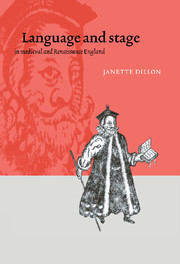9 - Conclusion
Published online by Cambridge University Press: 15 January 2010
Summary
To stop at 1600 is not to reach the end of the argument, but rather to stop at a major point of transition. The end of the century and the end of Elizabeth I's very long reign (1558–1603) do not represent an end to the staging of non-English voices in English drama; but they do coincide with notable changes to the context of that staging which suggest a whole new area of study. The accession of a Scottish king to the English throne, for example, a king with the concept of a united Britain on his agenda, is only one very obvious aspect of how England's assertion of Englishness is very differently determined after 1603.
Other languages remain central to English Jacobean drama, and the Babel/Babylon topos remains a conspicuous one across different discourses, including anti-theatrical discourse. As William Crashawe thunders in a sermon preached at Paul's Cross in February 1608: ‘The ungodly Playes and Enterludes so rife in this nation; what are they but a bastard of Babylon, a daughter of error and confusion, a hellish device, (the divels owne recreation to mock at holy things) by him delivered to the Heathen, from them to the Papists, and from them to us?’ (Crashawe, The Sermon Preached at the Crosse, p. 170). For this preacher, as for Bale, theatre is deeply linked with heathen and Catholic degeneracy by its predisposition to ‘mock at holy things’; and because this tendency towards mockery is, in Crashawe's view, so deeply-rooted in the theatrical act as to be a defining characteristic of theatre, the only solution is to destroy theatre: ‘happie hee that puts his hand to pull downe this tower of Babel’ (p. 172).
- Type
- Chapter
- Information
- Language and Stage in Medieval and Renaissance England , pp. 220 - 221Publisher: Cambridge University PressPrint publication year: 1998



